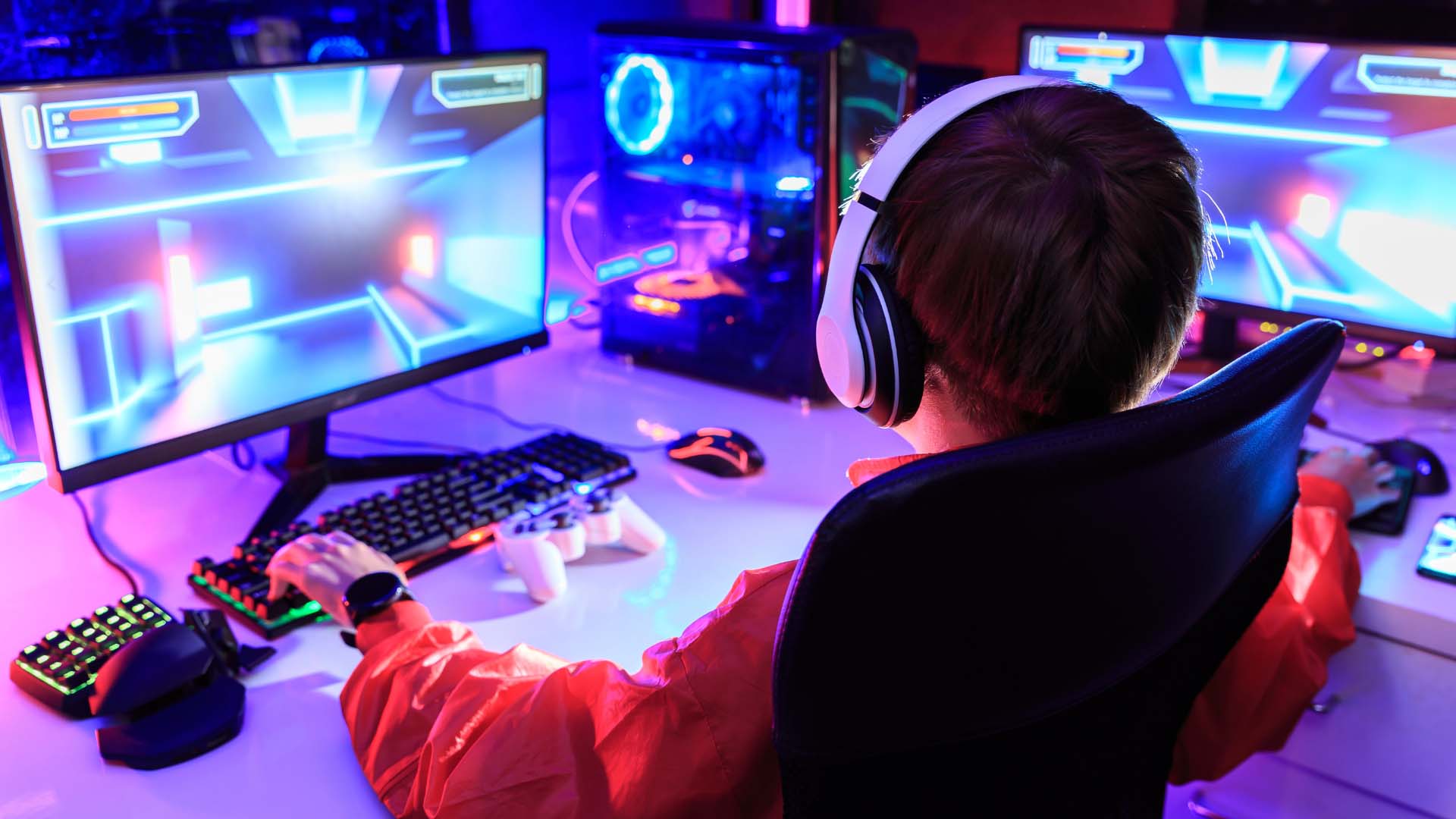
Introduction
So, you’re ready to dive into the world of gaming PCs. Whether you’re looking to play the latest AAA titles at ultra settings or just enjoy a smooth experience in your favorite indie games, choosing the right gaming PC can be a daunting task. There are tons of components, specifications, and brands to consider. Don’t worry, though – we’ve got you covered. In this guide, we’ll walk you through everything you need to know to make an informed decision.
Understanding Your Gaming Needs
Before you start picking out parts or browsing pre-built systems, it’s essential to understand your gaming needs. Are you a casual gamer who enjoys the occasional session, or are you a hardcore gamer who spends hours on end immersed in virtual worlds?
Casual Gaming vs. Hardcore Gaming
If you’re a casual gamer, you might not need the latest and greatest hardware. Games like “The Sims” or “Minecraft” don’t require the same power as “Cyberpunk 2077” or “Call of Duty: Warzone.” However, if you’re into competitive or AAA gaming, you’ll need a more powerful system to ensure smooth gameplay and high-quality graphics.
Future-Proofing Your Setup
Technology evolves quickly, and what’s cutting-edge today can become outdated in a year or two. When choosing components, consider their longevity. Opting for slightly higher specs now can save you from frequent upgrades down the line.
Key Components of a Gaming PC
Processor (CPU)
The CPU is the brain of your computer, and for gaming, you’ll want something that can handle demanding tasks.
Intel vs. AMD
Both Intel and AMD offer great processors for gaming. Intel’s Core series and AMD’s Ryzen series are popular choices. Intel CPUs are known for their strong single-core performance, while AMD CPUs often offer more cores and threads for multitasking.
Core Count and Clock Speed
For most games, a quad-core CPU is sufficient, but having more cores can help with multitasking and future-proofing your system. Clock speed, measured in GHz, also plays a crucial role in performance. Generally, higher clock speeds translate to better performance.
Graphics Card (GPU)
The GPU is arguably the most critical component for a gaming PC, as it handles all the graphical rendering.
Integrated vs. Dedicated GPUs
Integrated GPUs are built into the CPU and share memory with it. They are suitable for very light gaming but won’t handle demanding games well. Dedicated GPUs have their own memory and processing power, providing significantly better performance.
NVIDIA vs. AMD
NVIDIA and AMD are the two main players in the GPU market. NVIDIA cards are known for their superior ray tracing and DLSS technology, while AMD offers competitive pricing and strong performance.
Memory (RAM)
RAM is crucial for smooth gameplay and multitasking.
How Much RAM is Enough?
For gaming, 16GB of RAM is the sweet spot. It’s enough for most games and some multitasking. For more intensive tasks or future-proofing, 32GB might be worth considering.
DDR4 vs. DDR5
DDR4 RAM is currently more common and cost-effective, but DDR5 is the newer standard offering better performance and efficiency. As DDR5 becomes more mainstream, it might be worth the investment.
Storage
Your choice of storage affects load times and overall system responsiveness.
HDD vs. SSD
HDDs (Hard Disk Drives) are cheaper and offer more storage space, but they are slower. SSDs (Solid State Drives) are faster and make your system much more responsive, reducing game load times significantly.
NVMe SSDs
NVMe SSDs are even faster than regular SSDs, using the PCIe interface instead of SATA. They are ideal for reducing game load times and overall system performance.
Motherboard
The motherboard connects all your components together.
Form Factor
Motherboards come in different sizes: ATX, Micro-ATX, and Mini-ITX. Your choice depends on the size of your case and your needs for expansion slots and ports.
Compatibility
Ensure your motherboard is compatible with your CPU, RAM, and other components. Check the socket type and chipset to avoid any compatibility issues.
Power Supply Unit (PSU)
The PSU provides power to all your components.
Wattage Requirements
Make sure your PSU has enough wattage to support all your components. It’s generally a good idea to have a little extra headroom to accommodate future upgrades.
Efficiency Ratings
Look for PSUs with high-efficiency ratings (80 Plus Bronze, Silver, Gold, Platinum, or Titanium). Higher efficiency means less power wastage and better reliability.
Cooling System
Keeping your components cool is crucial for performance and longevity.
Air Cooling vs. Liquid Cooling
Air cooling is more common and generally easier to set up. Liquid cooling offers better cooling performance and is quieter but can be more complex to install and maintain.
Case Fans and Airflow
Proper airflow within your case is essential. Ensure you have enough case fans to maintain good airflow, preventing any hotspots that could overheat your components.
Additional Peripherals
A gaming PC isn’t complete without the right peripherals.
Monitor
Your monitor choice affects your gaming experience significantly. Consider factors like resolution, refresh rate, and response time. A 1080p monitor with a 144Hz refresh rate is great for competitive gaming, while a 4K monitor offers stunning visuals.
Keyboard and Mouse
Gaming keyboards and mice are designed to offer better performance and durability. Mechanical keyboards provide a better typing and gaming experience, while a good gaming mouse ensures precision and comfort.
Audio Solutions
Good audio can enhance your gaming experience. Consider a quality headset for immersive sound or a set of speakers if you prefer.
Building vs. Buying a Pre-built Gaming PC
Advantages of Building Your Own PC
Building your own PC allows for customization, better component quality, and usually better value for money. It also provides a learning experience and a sense of accomplishment.
Benefits of Pre-built PCs
Pre-built PCs are convenient and come with warranties and support. They are ideal for those who aren’t comfortable building their own system or who want to start gaming right away.
Budget Considerations
Your budget will heavily influence your choices.
Entry-Level Builds
An entry-level build, costing around $600-$800, can handle most games at medium settings and is great for casual gamers.
Mid-Range Builds
Mid-range builds, costing between $1,000-$1,500, offer better performance and can handle most games at high settings.
High-End Builds
High-end builds, costing $2,000 and up, are for those who want to game at ultra settings and high resolutions like 4K.
Brand Recommendations and Reliability
Trusted Brands for Components
Stick to reputable brands like ASUS, MSI, Gigabyte, Corsair, and EVGA. These brands are known for their quality and reliability.
Warranties and Customer Support
Ensure your components come with good warranties and customer support. This can save you a lot of hassle in case of defects or issues.
Conclusion
Choosing the right gaming PC requires a balance of understanding your needs, knowing the key components, and considering your budget. Whether you decide to build your own or go for a pre-built system, make sure to do your research and pick parts that will offer you the best gaming experience for your money.
FAQs
- What is the most important component of a gaming PC?
The GPU is often the most critical component for gaming, as it directly affects the performance and quality of your games. - Is it cheaper to build or buy a gaming PC?
Building a gaming PC can be cheaper and offers better customization, but pre-built systems provide convenience and support. - How much RAM do I need for gaming?
16GB of RAM is generally sufficient for most gaming needs, though 32GB can be beneficial for more intensive multitasking and future-proofing. - Do I need an SSD for gaming?
While not essential, an SSD significantly improves load times and overall system responsiveness, making it a worthwhile investment. - What brands are reliable for gaming PC components?
Brands like ASUS, MSI, Gigabyte, Corsair, and EVGA are known for their quality and reliability in gaming PC components.



